Exploring the Challenges of Bias and Lack of Transparency in AI: Implications for the Legal Industry
Artificial Intelligence (AI) has the potential to automate repetitive tasks, increase efficiencies, and reduce costs, making it an attractive option to make lawyers and legal staff more productive, and create new roles. However, AI also challenges our notions of fairness and due process, which are the cornerstones of the rule of law, and essential aspects of international arbitration. In particular, the issue of bias in AI and the lack of transparency and explainability in AI models could affect the validity and reliability of evidence obtained through AI.
How Arbitral Institutions and International Organisations Are Paving the Way to New Technologies
Explore how arbitral institutions and international organisations are embracing technology to revolutionise case management and dispute resolution processes. This page highlights cutting-edge initiatives and resources aimed at streamlining arbitration, from innovative submission systems to tailored guidelines and specialized rules for tech-related disputes.
SCC’s Digital Transformation Journey: Spotlight on SCC’s Online Request for Arbitration Form
SCC Arbitration Institute (SCC) has provided world-class dispute resolution services since 1917. SCC is independent, progressive, and reliable, with the needs of Swedish and international business always at the centre of its work. Every year, SCC receives an average of between 150 to 200 new cases, involving parties from over 40 different jurisdictions.
Exploring Council of Europe’s Framework Convention On Artificial Intelligence
With the fast-paced development of AI systems, the need to regulate such new technologies arose rapidly. Europe is taking the lead in regulating AI, particularly with two key initiatives in this space: (i) the adoption on 21 May 2024, of the EU Artificial Intelligence Act (namely, Regulation 2024/1689) (“EU AI Act”); and (ii) the adoption on 17 May 2024 of the Framework Convention on Artificial Intelligence and Human Rights, Democracy and the Rule of Law (“AI Convention”) by the Committee of Ministers of the Council of Europe (“CoE”).
Exploring Brazil’s Digital Government and Procurement: AI-Powered Insights
In a remarkable demonstration of AI capabilities, this podcast, hosted by André Guskow, explores the future of digital government, public procurement, and contracting in Brazil. This AI-powered episode showcases how modern technologies, such as artificial intelligence (AI) and smart contracts, are reshaping public procurement and governance.
A Comprehensive Guide to AI in Arbitration: Benefits, Challenges, and Ethical Considerations
This guide will help you understand the role AI plays in arbitration, the challenges it introduces, and the future outlook, providing you with the insights needed to navigate this evolving landscape.
Legal Considerations for Mixed Reality (MR) in LegalTech and Arbitration
Mixed Reality (MR) is an emerging technology that blends the physical and digital worlds. As MR technology becomes more sophisticated, it presents unique legal challenges. This blog delves into some of the legal considerations related too MR in the legal sector, focusing on data security, intellectual property, product liability, and the implications of MR in arbitration.
Legal Considerations for Virtual Reality (VR) in LegalTech and Arbitration
Virtual Reality (VR) is rapidly transforming the legal landscape, offering innovative tools for legal professionals and arbitration practitioners. As this immersive technology becomes more integrated into legal practices, it’s crucial to understand the legal considerations associated with VR. This blog explores the key legal issues surrounding VR in LegalTech, with a focus on privacy, intellectual property, product liability, and accessibility.
Exploring The Intersection of Law, AI, and Web3: A Philosophical Journey
At ArbTech, we pride ourselves on providing practical insights into the ever-evolving world of technology and dispute resolution. Today, however, let's embark on a more philosophical journey, one that delves into the profound questions surrounding the rule of law in the age of Web3 and artificial intelligence (AI). These aren't just abstract concepts—they're vital considerations with real-world implications, particularly for international arbitration.
Augmented Reality (AR) in Law and Technology: A Comprehensive Guide
Augmented Reality (AR) is revolutionising how we interact with the world by overlaying digital information onto our physical environment. As AR technology advances, it presents both opportunities and challenges within the legal and tech landscapes. This blog post explores AR through the lens of law and technology, examining its applications, legal considerations, and future implications.
Exploring AR, VR, and MR: The Future of Extended Reality in Legal Tech
In this post, we delve into the exciting worlds of Augmented Reality (AR), Virtual Reality (VR), and Mixed Reality (MR). Collectively known as Extended Reality (XR), these technologies are revolutionising various industries and presenting new legal challenges and opportunities. We examine the defining characteristics of AR, VR, and MR, and discuss the legal considerations that accompany their integration into the modern world.
Understanding Blockchain Governance: A Deep Dive
Blockchain governance is a fascinating yet complex topic, often sparking debates among tech enthusiasts and experts. It represents a paradigm shift, rewriting the rules of governance from scratch. However, despite significant efforts to create self-governing systems within blockchain, these innovations have only met with limited success. This article delves into the intricacies of blockchain governance, drawing insights from recent research to shed light on its challenges and potential.
Navigating the Legal Landscape of Augmented Reality
Augmented Reality (AR) has rapidly evolved from a futuristic concept to a practical technology transforming various industries. From gaming and entertainment to healthcare and education, AR applications are limitless. However, with its widespread adoption, several legal issues have emerged that stakeholders must navigate. This blog post delves into the key legal concerns surrounding Augmented Reality, ensuring that businesses and developers can innovate responsibly while staying compliant.
The Intersection Between Tokenization of Assets and Decentralized Justice
The tokenization of assets using blockchain technology holds the promise of revolutionizing the traditional lending market and to offer alternatives for companies wanting to secure liquidity and funding.
The EU Artificial Intelligence Act and Its Impact On Arbitration Proceedings
The European Union is on the brink of a pivotal moment in technology regulation with the final stages of the Artificial Intelligence Act. This legislation is set to establish a comprehensive legal framework for AI, positioning the EU as a global leader in the governance of rapidly evolving technologies. After receiving endorsement from EU Member States and recent approval by the European Parliament's Internal Market and Civil Liberties Committees, the Act is scheduled for a parliamentary vote on 10-11 April, edging closer to its formal enactment.
Navigating Web3: Revolutionizing the Internet, Its Promise & Challenges
Web3, the blockchain-based evolution of the internet, holds the potential to reshape our digital world in profound ways. Sophie Nappert, co-founder of ArbTech, shares her insights into this transformative concept, its vast potential, and the hurdles it faces on its path to realization.
Blockchain Technology and Tokenization of Real World Assets: Insights from Ines Braganca Gaspar
In a recent session hosted by ArbTech, Inês Bragança Gaspar, a Portuguese lawyer specializing in Web 3, blockchain, and cryptocurrency, shared her expertise and ongoing research on the tokenization of real-world assets (RWAs) and decentralized justice. Her presentation delved into the basics of blockchain technology, its application in tokenizing assets, and the potential legal challenges and solutions in this emerging field.
DeFi: Estado del Arte / o Estado da Arte
The panel discussed how DeFi is changing traditional notions of finance, the current state of DeFi in Latin America and in Portugal, as well as the interaction of regulation with this developing field.
The Kleros Mediation Bridge: Blending Traditional Mediation & Blockchain Arbitration
In a recent webinar, Sophie Nappert, co-founder of ArbTech, moderated the discussion on the innovative approach to dispute resolution known as the "Kleros Mediation Bridge." The webinar featured Federico Ast (President, Kleros), and Robert Dean (Associate Director, Driver Trett). The purpose of the webinar was to shed light on how Kleros, a decentralized justice platform, could be used in the context of mediation and arbitration to streamline dispute resolution processes.
The Emergence of Network States: A New Paradigm in Governance
In recent years, the concept of network states has been gaining traction, offering a potential paradigm shift in governance and citizenship. This revolutionary idea challenges traditional notions of states and nations, offering a vision where the physical territory is not a defining characteristic of a state. Instead, network states rely on blockchain technology and a digital social contract to create a new form of community and governance.




















